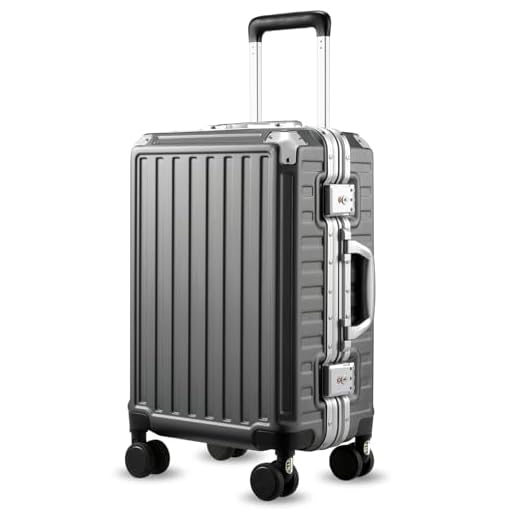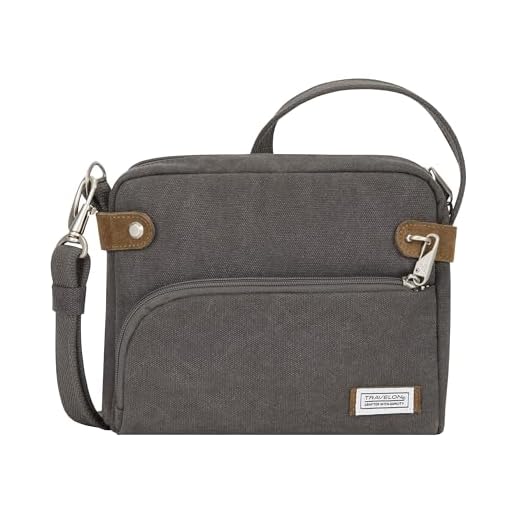



Utilize a high-quality lock to secure your bags, preventing unauthorized access while you relax. A combination lock is preferable for its convenience, eliminating the need for keys that could be lost. Ensure that the lock is robust and resistant to tampering.
Position your items in a centralized area of the carriage, where visibility is maximized. Sit near your possessions, maintaining a clear line of sight. This not only deters would-be thieves but also allows for quicker response if something seems amiss.
Consider using a luggage strap for added security. These can be wrapped around your suitcase or backpack, making it harder for someone to simply grab and run. Brightly colored straps can also help in easily identifying your belongings among others.
Be aware of your surroundings and the passengers in your vicinity. Engaging in conversation with fellow travelers can enhance the communal atmosphere while simultaneously aiding in vigilance. If you observe suspicious behavior, act promptly by notifying train staff.
Store smaller bags typically under your seat or in overhead compartments. When using the latter, employ a lock or secure strap to tether your items, mitigating the risk of theft. Large, wheeled suitcases should be placed in designated areas so they are not in the way but remain visible.
Incorporating these strategies will significantly enhance the safety of your possessions during your rail travel.
Methods to Protect Your Belongings on a Train
Use a lock with a durable cable to attach your items to fixed structures within the carriage. This prevents easy removal and enhances the safety of your possessions.
Choose the Right Placement
Store bags in designated compartments or under your seat. Avoid placing them in overhead racks, as these areas are more susceptible to theft.
Stay Vigilant
Keep an eye on your possessions, especially during stops. Engage with fellow passengers or staff if you notice suspicious behavior, as being alert helps deter potential thieves.
Choosing the Right Luggage Lock
Opt for locks that are approved by the Transportation Security Administration (TSA) for air travel compatibility, allowing security personnel to access the contents without damaging your belongings.
Consider the following types of locks based on your needs:
| Lock Type | Details |
|---|---|
| Combination Locks | Eliminate the risk of losing keys. Choose a 3-digit or 4-digit code for added security. |
| Key Locks | Provide a traditional method for securing bags. Ensure you keep the key in a safe place. |
| Cable Locks | Flexible and adjustable, suitable for securing multiple items together. |
| Travel Locks with Alarm | Emit an alarm if tampering is detected, offering an extra layer of protection. |
Prioritize durability by selecting materials such as hardened steel or reinforced plastic, which resist cutting and corrosion.
Keep in mind size specifications; ensure the lock fits the zipper pulls or hasps of your suitcase without obstructing movement. Regularly test the lock’s mechanism to avoid potential issues during transit.
Utilizing Anti-Theft Luggage Features
Consider investing in bags equipped with anti-theft features such as lockable zippers and RFID-blocking compartments. These components hinder unauthorized access while keeping your valuables safe from electronic theft.
Lockable Compartments
Choose bags that offer lockable zippers. Pair them with a travel lock for enhanced security. Some designs come with built-in locks, providing an additional layer of protection without the hassle of extra accessories.
Anti-Theft Straps
Look for items featuring adjustable, cut-resistant straps. These can be attached to fixed objects like train seats or luggage racks, significantly reducing the likelihood of theft during your journey.
Consider bags with concealed pockets that can deter pickpockets. Clever designs hide valuable items, making it difficult for thieves to access them unnoticed. Additionally, opt for materials resistant to slashing to further protect your belongings.
Storing Your Luggage in Designated Areas
Utilize luggage racks or storage compartments provided in the vehicle. These areas are specifically designed to accommodate bags securely during travel.
- Position large bags on overhead racks for easy access and visibility.
- Use under-seat space for smaller items to keep them close and out of foot traffic.
Be Mindful of Placement
Place your belongings where they won’t obstruct the passage. This minimizes the risk of accidental damage and ensures a safer environment for fellow travelers.
- Avoid leaving items in aisles or doorways.
- Don’t block access to emergency exits or safety equipment.
Monitoring Your Belongings
Regularly check on your possessions, especially during breaks. Keeping an eye on your items can deter potential theft and ensures everything remains in place.
- Consider a buddy system; traveling with a companion allows one person to keep watch while the other takes a break.
- Remain aware of your surroundings and fellow passengers to identify any suspicious behavior.
Keeping Your Valuables Close During Travel
Keep vital items in a compact crossbody bag or a fanny pack that remains on you throughout your trip. This maximizes accessibility while minimizing risk.
- Choose a Multi-Functional Bag: Look for something that offers anti-theft features such as locking zippers and cut-resistant straps. The best molle backpack attachments can add extra compartments for organization.
- Utilize Hidden Pockets: Many bags come with secret compartments designed specifically for valuables. Use these pockets for cash, credit cards, and passports.
- Limit Carry-On Items: Only take essentials to reduce clutter and the risk of misplacing items. This makes it easier to keep track of what you have on hand.
Opt for items that blend well with your surroundings. A sleek tote can double as a stylish accessory and a secure carry-all. Consider investing in the best tote bags for business travel for optimum functionality.
Be mindful of any location changes, and always keep an eye on your personal belongings. If you have the option, make use of a security pouch that can be worn under clothing.
Lastly, remember to check if you have access to programs like smartcare rewards available on fridge freezers, as they can provide additional perks while you’re away.
Monitoring Your Belongings at Stops
Stay vigilant during stops. Always keep an eye on your possessions, especially when the train halts at stations, as this is a prime time for opportunistic theft. If you need to exit the compartment, ask fellow travelers to watch your items. Form a mutual agreement with nearby passengers if you can. This small act can deter potential thieves.
Utilize Technology
Consider using mobile applications that offer tracking features for your items. GPS-enabled accessories can provide real-time updates on your belongings’ locations. Some travelers opt for Bluetooth trackers that send alerts to your smartphone if you move too far away from them.
Be Aware of Your Surroundings
Maintain awareness of your environment, especially during stops. Observe the behavior of others nearby, and if something seems off, trust your instincts. Keep your belongings in sight within busy stations and avoid distractions, such as your phone, which can divert your attention.
Do not leave bags unattended on benches or platforms. If you’re eating or taking a moment to relax, ensure that your valuables are always within reach. When boarding or exiting, secure your bags immediately to minimize the risk of leaving them behind.







